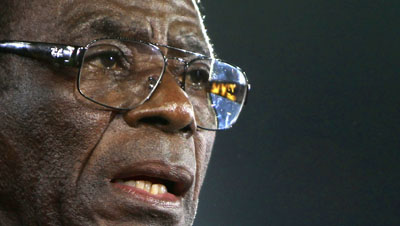New York, October 23, 2012–Authorities in Equatorial Guinea indefinitely suspended a radio program on a government-controlled outlet during a broadcast on Friday that included criticism of the president of the Supreme Court, according to local journalists and news reports.
The show, “Cultura En Casa,” which covered local social issues and aired three times a week on RTVGE, was stopped at around 9:15 a.m. on Friday on the order of Benjamin Mangue Micha, assistant director of the station, according to local journalists. Local news blog Malabo News quoted Micha as saying that the censorship order came from above, and that no official written decision existed. Studio technicians replaced the interview with the show’s jingle, local journalists said.
The show was broadcasting an interview with Teresa Mbasogo, a guest who had asked to speak on the air as a representative of 18 families seeking justice for the arbitrary demolition of their homes and confiscation of their land in Bata, the economic capital, in November 2011, according to news reports. Mbasogo had criticized Chief Justice Martin Ndgong Nsue in the interview for his alleged personal involvement in the dispute.
“Cultura En Casa” did not air Monday as scheduled, local journalists said.
“Silencing ‘Cultura En Casa’ for its interview with an aggrieved citizen is an affront to all people’s right to receive and impart information,” said CPJ Africa Advocacy Coordinator Mohamed Keita. “President Teodoro Obiang trumpets his government’s supposed strides on human rights, but this act of censorship reflects a determination to quash those rights. We call on the government to allow ‘Cultura En Casa’ to resume broadcasting immediately.”
CPJ ranked Equatorial Guinea fifth on its Most Censored Countries list. Obiang’s government tightly monitors and controls national airwaves in Equatorial Guinea, according to CPJ research. Government censors enforce rules that ensure the regime is portrayed positively; journalists who don’t comply risk prison under criminal statutes that include defamation. The president’s administration has dictated that state media praise him and refrain from covering political abroad.
- For more data and analysis on Equatorial Guinea, visit CPJ’s Equatorial Guinea page here.
